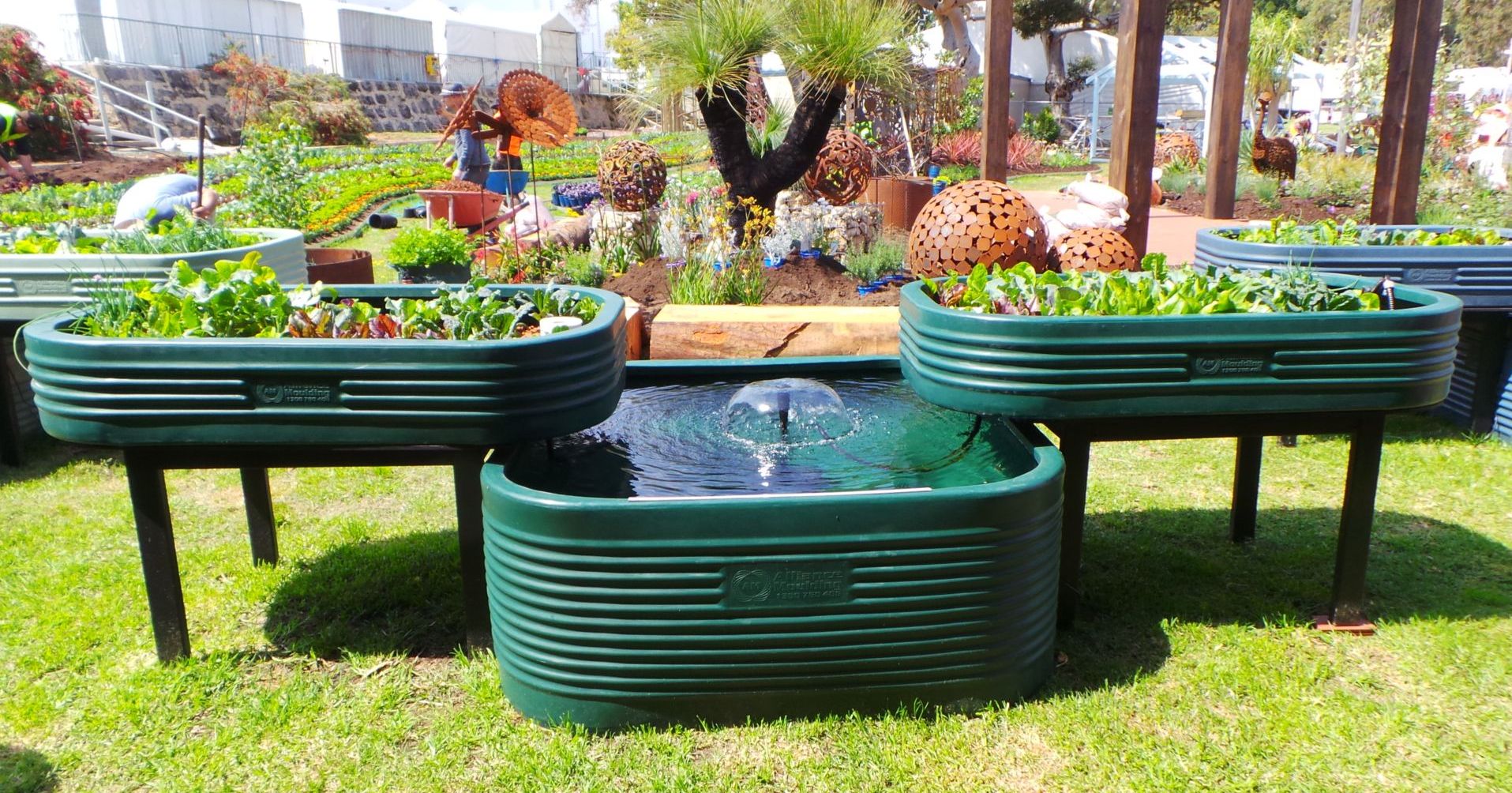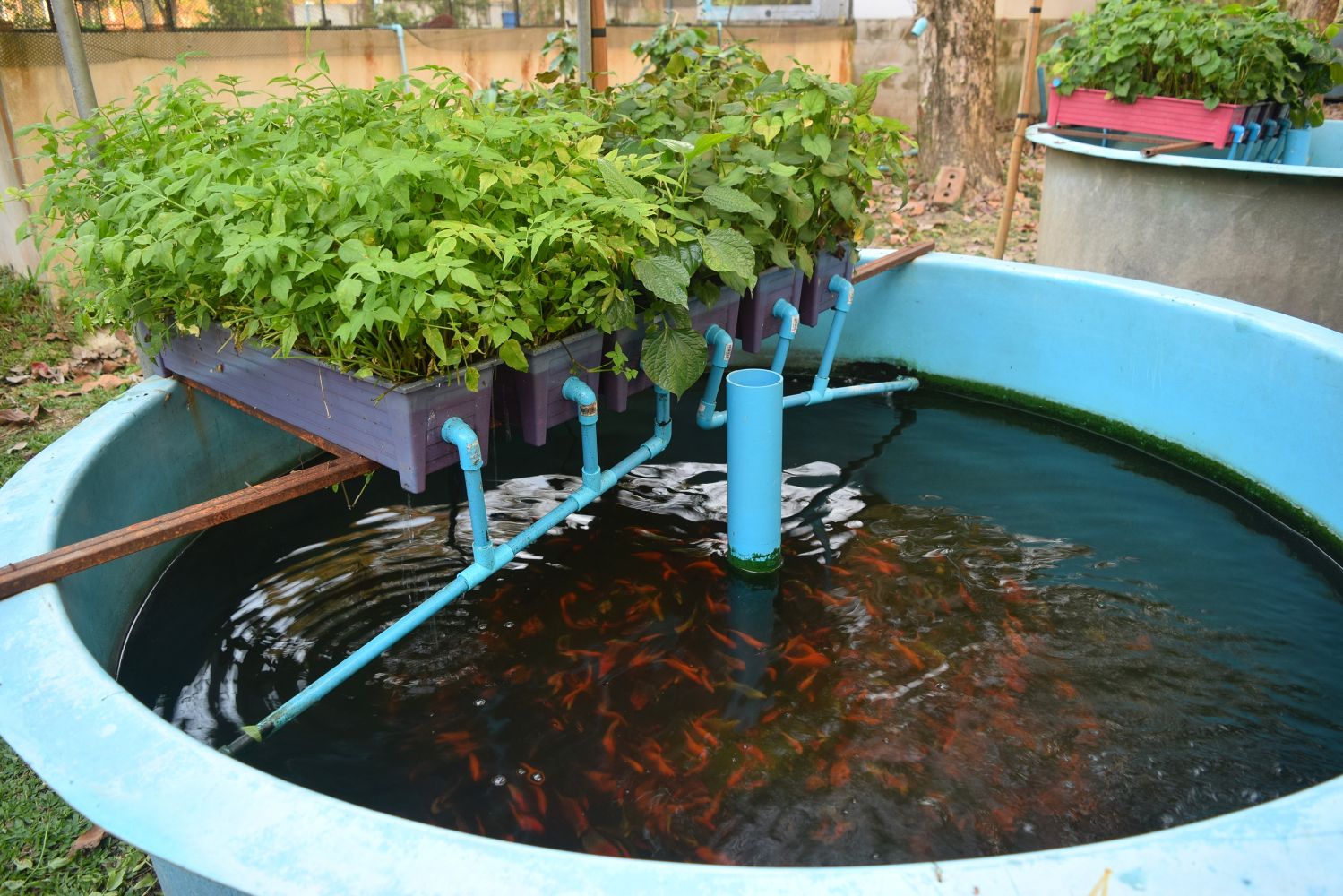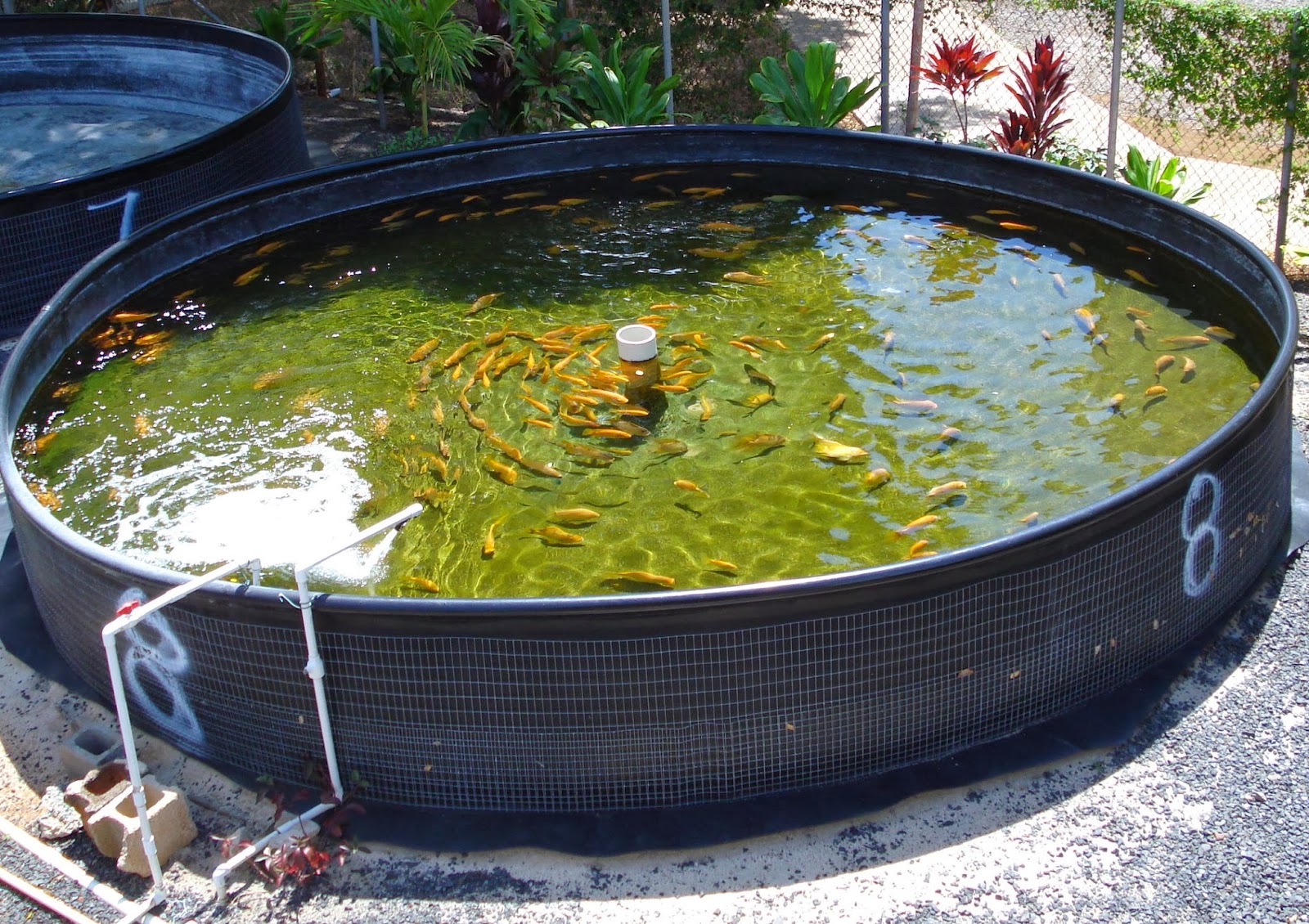Fish garden systems, a fusion of aquaculture and gardening, offer a unique approach to sustainable food production. This comprehensive guide delves into the intricacies of designing, maintaining, and maximizing the benefits of these systems.
Discover the components, advantages, and design considerations of fish garden systems. Explore suitable fish and plant species, maintenance practices, and troubleshooting tips. Learn how these systems promote sustainability and contribute to urban and rural environments.
System Overview
A fish garden system, also known as an aquaponics system, is a sustainable and eco-friendly approach to growing plants and raising fish in a symbiotic environment.
It consists of several interconnected components, including a fish tank, a plant grow bed, a filtration system, and a pump. The fish tank houses the fish, which produce waste that serves as a natural fertilizer for the plants. The water from the fish tank is pumped into the grow bed, where it provides nutrients and moisture to the plants.
Benefits of Using a Fish Garden System
- Efficient water usage:Aquaponics systems recycle water, reducing water consumption compared to traditional gardening methods.
- Increased crop yields:The nutrient-rich water from the fish tank promotes plant growth, resulting in higher yields.
- Organic produce:Aquaponics systems do not require chemical fertilizers, ensuring the production of organic produce.
- Sustainability:Aquaponics systems create a closed-loop ecosystem, promoting sustainability and reducing environmental impact.
Design Considerations

Designing a fish garden system requires careful planning to ensure the health and well-being of both fish and plants. Here are some key considerations:
The size of the tank is crucial, as it determines the number of fish and plants that can be accommodated. A larger tank provides more space for fish to swim and plants to grow, but it also requires more maintenance.
Fish Species
The choice of fish species is important, as some species are more compatible with certain plants than others. For example, goldfish are known to be voracious eaters and may damage delicate plants, while tetras are generally more peaceful and less likely to harm plants.
Plant Selection, Fish garden system
The selection of plants is equally important, as some plants require more light or nutrients than others. Fast-growing plants can help to absorb excess nutrients from the water, while floating plants can provide shade for fish.
Water Quality and Filtration
Maintaining good water quality is essential for the health of both fish and plants. A filtration system is necessary to remove waste and debris from the water, and regular water changes are also important.
Fish Selection

Selecting suitable fish species is crucial for the success of a fish garden system. The fish should be compatible with each other and the plants, have compatible feeding habits, and have water requirements that align with the system.
When choosing fish, consider their size, temperament, and compatibility with other species. Some popular fish species suitable for fish garden systems include:
- Goldfish: Hardy and easy to care for, goldfish are a good choice for beginners.
- Koi: Known for their beauty and longevity, koi are a popular choice for larger systems.
- Fancy guppies: These colorful and active fish are a good choice for adding variety to the system.
- Tetras: Small and schooling fish, tetras are a good choice for adding movement and color to the system.
- Corydoras catfish: These bottom-dwelling fish help keep the substrate clean.
Feeding Habits
Consider the feeding habits of the fish when selecting species. Some fish are omnivorous and will eat both plants and animals, while others are herbivores or carnivores. It’s important to choose fish with compatible feeding habits to avoid competition for food.
Water Requirements
The water requirements of the fish should also be considered. Some fish prefer warm water, while others prefer cold water. The pH and hardness of the water should also be considered, as some fish are more sensitive to changes in these parameters.
Complementary Fish and Plants
When selecting fish, it’s also important to consider how they will complement the plants in the system. Some fish, such as goldfish, can damage plants by nibbling on them. Other fish, such as tetras, can help control algae growth by eating it.
Plant Selection
Selecting the right plants for your fish garden system is crucial for creating a healthy and balanced ecosystem. Plants provide oxygen, filter water, absorb nutrients, and create hiding places for fish.
Oxygenating Plants
- Watercress
- Hornwort
- Anacharis
These plants release oxygen into the water, which is essential for fish respiration.
Filtration Plants
- Water hyacinth
- Duckweed
- Azolla
These plants remove excess nutrients and pollutants from the water, improving water quality.
Nutrient-Absorbing Plants
- Water lettuce
- Salvinia
- Water sprite
These plants absorb excess nutrients, preventing algae growth and maintaining a healthy water balance.
Hiding Places
- Java moss
- Elodea
- Cabomba
These plants provide shelter and hiding places for fish, reducing stress and promoting their well-being.
Maintenance and Monitoring

Regular maintenance is crucial for the health of your fish garden system. Monitoring water quality, feeding your fish, and controlling algae are essential tasks.
Water testing should be done regularly to check pH, ammonia, nitrite, and nitrate levels. These parameters indicate the health of the water and the fish.
Feeding Schedules
Feed your fish regularly, but avoid overfeeding. The amount and frequency of feeding will depend on the type of fish you have.
Algae Control
Algae growth can be controlled by providing adequate water flow, adding plants to the system, and using algae-eating fish or snails.
Troubleshooting Common Problems
Common problems in fish garden systems include water quality issues, fish diseases, and algae blooms. Regular maintenance and monitoring can help prevent these problems.
Sustainability

Fish garden systems promote sustainability by combining aquaculture and horticulture in a mutually beneficial relationship. They offer significant advantages for water conservation, nutrient recycling, and food production, making them a valuable tool for sustainable living.
In a fish garden system, the fish provide nutrients for the plants, while the plants help to filter the water for the fish. This creates a symbiotic relationship that can be beneficial for both the fish and the plants. If you’re interested in learning more about hydroponics in Bristol, check out hydroponics bristol . You can find information on how to set up a hydroponic system, as well as tips on growing plants in this type of environment.
Back to the fish garden system, it’s important to note that the size of the system will determine the number of fish and plants that you can keep. A larger system will allow you to keep more fish and plants, but it will also require more maintenance.
In terms of water conservation, fish garden systems recirculate water, minimizing water loss through evaporation and seepage. The plants in the system absorb excess nutrients from the water, reducing the need for additional fertilization and preventing nutrient runoff into waterways.
Nutrient Recycling
Fish garden systems facilitate efficient nutrient recycling. The fish produce waste, which is rich in nutrients. These nutrients are utilized by the plants, promoting their growth and productivity. In turn, the plants provide oxygen and filtration for the fish, creating a symbiotic relationship.
Food Production
Fish garden systems can contribute to sustainable food production. The fish provide a source of protein, while the plants offer a variety of vegetables and herbs. This integrated approach allows for a diverse and nutritious food supply, reducing reliance on external food sources.
Urban and Rural Integration
Fish garden systems can be incorporated into both urban and rural environments. In urban areas, they can provide a compact and efficient way to produce food and reduce water consumption. In rural areas, they can supplement existing agricultural practices and enhance nutrient cycling.
Final Thoughts: Fish Garden System

Fish garden systems empower individuals to cultivate a sustainable food source while fostering a harmonious ecosystem. By integrating aquaculture and gardening, these systems offer a path towards environmental stewardship and resilient food production.
FAQ Explained
What are the benefits of using a fish garden system?
Fish garden systems offer numerous benefits, including water conservation, nutrient recycling, and increased food production. They create a closed-loop ecosystem that promotes sustainability.
How do I choose suitable fish and plant species for my system?
Consider factors such as compatibility, feeding habits, and water requirements when selecting fish species. Choose plants that provide oxygenation, filtration, and nutrient absorption to create a healthy ecosystem.
What are the regular maintenance tasks involved in a fish garden system?
Regular maintenance includes water testing, feeding schedules, and algae control. Monitoring water quality and addressing any issues promptly ensures the well-being of the fish and plants.
